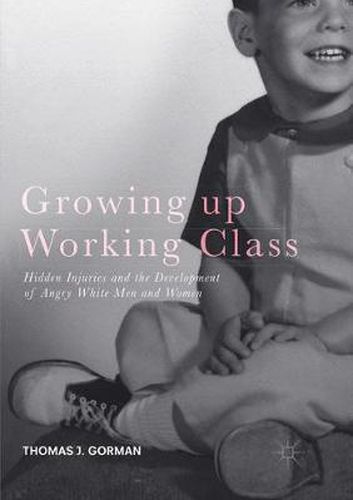Readings Newsletter
Become a Readings Member to make your shopping experience even easier.
Sign in or sign up for free!
You’re not far away from qualifying for FREE standard shipping within Australia
You’ve qualified for FREE standard shipping within Australia
The cart is loading…






This enlightening auto-ethnography examines how social class (and other social institutions and structures) affect how people grow up. Primarily, the book investigates how American children and young adults are impacted by the hidden injuries of class, and offers a rich description of how these injuries manifest and curdle later in life. Thomas J. Gorman provides sociological explanations for the phenomenon of the so-called angry white man, and engages with this phenomenon as it relates to the rise of recent populist political figures such as Donald J. Trump. He also examines how and why white working class people tend to lash out at the wrong social forces and support political action that works against their own interests. Finally, the book demonstrates the connections between working-class attitudes toward schooling, sports, politics, and economics.
$9.00 standard shipping within Australia
FREE standard shipping within Australia for orders over $100.00
Express & International shipping calculated at checkout
This enlightening auto-ethnography examines how social class (and other social institutions and structures) affect how people grow up. Primarily, the book investigates how American children and young adults are impacted by the hidden injuries of class, and offers a rich description of how these injuries manifest and curdle later in life. Thomas J. Gorman provides sociological explanations for the phenomenon of the so-called angry white man, and engages with this phenomenon as it relates to the rise of recent populist political figures such as Donald J. Trump. He also examines how and why white working class people tend to lash out at the wrong social forces and support political action that works against their own interests. Finally, the book demonstrates the connections between working-class attitudes toward schooling, sports, politics, and economics.